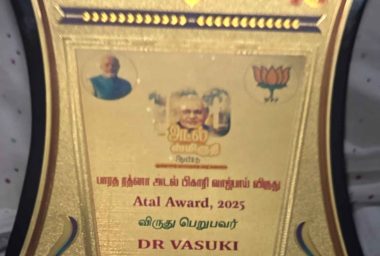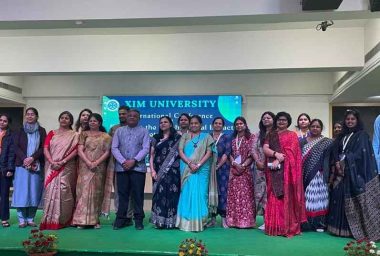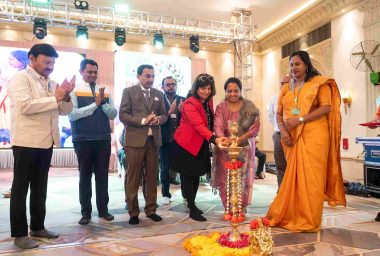-
Authoradmin
-
Comments0 Comments
-
Category
This decade is known as the era of the “Indian Crossover” as many Indian companies have slowly and steadily embarked on the global path, which has led to the emergence of the Indian multinational companies. It is time for Indian companies to become multinationals and commence operations globally. Indian companies are exploring markets all over the world. It may be one of the best ways of increasing revenue and might even be necessary to effectively regulate the flow of multinationals into India. In this multicultural and multilingual milieu the employees of Indian multinational companies are facing issues of adaptation. When an Indian company starts its operations in an alien country adapting to the local culture is very important.In general, Indian culture and religious practices emphasize the ideals of maintaining order, respecting elders, fulfilling family obligations, prioritizing group interests over individual interests, and maintaining harmony in relationships. These aspects may not be given importance in the countries where Indian MNCs start their operations. But understanding and accepting the norms and practices of the local culture paves way to the corporate’s success. Culture has the power to change the way in which business is done both in service and manufacturing sectors. Attitude to time– past, present, future–differs from culture to culture. Europeans and Asians emphasize the past whereas Americans have the attitude of “Don’t cry over spilt milk”. The organization will be able to synchronize the employees and departments in a congenial way if they understand the local culture.
————————————————————————————
*-Counselling Psychologist, Icfai Business School, Chennai
An interesting illustration was given by Kurt Lewin, a German-American psychologist, about Americans and Germans and their “Life spaces”. These life spaces were represented by U-type for Americans and G-type for Germans as given below.
There are two circles, the inner circle represents the private space and the space between the outer space and the inner space represents the public space. Americans have more public space than Germans and it is easy to enter into their public space that is represented by broken lines. Whereas in the case of Germans it is difficult to enter the public space but once entered it is easy to enter the private space which indicates that one will have a longer and deeper relationship with Germans. Since entering into the public space is easier in the case of Americans usually they are perceived as friendly people. Knowing such details when one decides to migrate to other countries will help to establish good rapport with co-employees.
As said earlier, Indian multinational companies should adapt to the local culture for its survival as this in turn leads to successful globalization. When they hire people from India to work with them, they should take extra care and render their full support till those employees get adjusted to the culture, climate, people and so on. Especially when they recruit students fresh from the campus utmost care should be taken, as making a good impression in the organization that too in the first year, is very important for them. In the world of business, those who practice good etiquette can achieve success.
The following real life case study analyzes the psychosocial adaptation difficulties of an Indian woman who entered the world of work as a fresh graduate and recently migrated to the United States, and examines the causes for her psychological disturbance. She exhibited distress, including depression, anxiety and self-conflict. Migratory stressors due to dissatisfaction with her life in the U.S, acculturation, and lack of social support were found to be the main causes of her condition.
Overview of the issue:
Meenu was the only child to her parents. She was from a joint family in which she had grown with her grandparents, uncles, aunts and cousins. She had a very safe and happy childhood. After her graduation she joined a business school to pursue an M.B.A program. This was a dream come true for her. During her third semester through a campus interview she got placed as a manager in a reputed company. After completing her MBA she joined the company. Before she could understand the organizational culture and the corporate etiquette, within a short span of four months, the franchise of the company where she was working wanted a women employee to be the manager for operations in USA. They offered a very good pay package with other perquisites. Going to USA is the dream of most youngsters in India and Meenu was no exception. So she happily gave her consent to the company and proceeded with further arrangements.
Being very fussy about food, Meenu had problems with food right from her first day in USA even though many Indian food items were available in Indian shops unlike in the past. She was brought up in a conservative joint family and she never wore any dresses other than salwars even though she studied in a business school. She found Western clothes uncomfortable but due to the cold climate she was left with no choice but to wear such outfits. She was highly disappointed with the lifestyle prevalent in the US. More than anything she missed her family and its emotional support. It was hard to change everything from her food to clothes. She found it very difficult to cope up with the fast life.
From being a responsible employee and a cheerful person, she became moody, short-tempered and frustrated. She was unable to function as before both in her office and at home. She was not able to do her routine work in time as her sleep patterns became irregular. Having noticed these changes, her aunt with whom she was staying informed her parents in India. They advised her to consult a physician. After a thorough investigation the physician said that Meenu did not have any physical problems and referred her to a counselor. By this time her grandfather fell sick and her family wanted her to come and see him as he was the one who brought her up. Her father spoke to the CEO of the company in India where she was working before and explained the situation as well as Meenu’s condition. Being an empathetic person and having known Meenu’s caliber the CEO made arrangements for Meenu to come to India on a short holiday. When Meenu came to India, her parents brought her to the psychologist for consultation.
Provisional analysis:
During the first session, only Meenu’s father was talking and she was listening to her father carefully. There was no expression on her face. She did not interrupt or object to what her father said. Only in the third session Meenu opened up to the counselor. She said that she did not like to be in the US for various reasons like too much of responsibilities given to her in her organization, she was totally dependant on the public transport as she was yet to get her driving license and get familiarized with the routes, she had to do all her work including cooking, nobody was there to talk to when she came back from her office as her aunt used to be busy with her work. When she was in India once she came back from college she used to have fun with her cousins and used to share what happened on that day with her parents and others at home. She used to have a driver. She was missing all these at the US.
Making a transition from campus to corporate requires lot of planning. The culture prevalent in the college is entirely different from that of the corporate culture. Adapting to the organizational culture requires commitment and effort on the part of the fresher. It can be achieved over a period of time. Usually organizations monitor and guide their employees for at least the first six months. In the case of Meenu she was not given enough time to understand the work culture or the necessary etiquette. Before it happened she was transferred to the US. She was new to the organization and also new to the country which had a different culture altogether. Even the extent to which people express their emotions and feelings differs from one culture to another. In India, Meenu had many people with whom to share her feelings and emotions. Though India is a strange combination of numerous religions and communities of people, the basic values and systems of family life remain similar. Social systems are more inclined towards addressing the needs of ordinary people. One such system is the joint family system. This system is unique in many ways because it is able take care of most of the modern day problems. The increasing complexities of the modern life are simplified to some extent by the extended members in the family. For instance, the household responsibilities of working people are shared,, and imparting values to youngsters in the family are taken care of by the elders in the family. The joint family acts as a safety valve which helps in managing financial issues, depressurising and moderating the emotional problems etc in the family. Meenu was very much used to such an environment.
A homely person by nature, being in such an environment gave Meenu a sense of belonging and security that she missed in the US. She believed that the family is a living, breathing institution that has evolved over a long period of time. Unlike India, in USA people are more inclined towards individualism, which has started eroding the values of the family system. People live in nuclear families. Living in such an environment created feelings of insecurity, guilt, self-blame, anger, helplessness and anxiety in her. Meenu’s mixed feelings were due to many factors like not being able to live with her family, not being able to adapt to the new culture, not being able to concentrate on her work, and not finding a solution to her problems. But she never said that she did not want to go back to USA. This helped the counselor to bring a change in her attitude and mindset.
In Meenu’s case, psychological adaptation required the dual task of letting go of the feeling of insecurity and overcoming sadness due to separation from her family, and managing the adaptation issues involved in leaving India and living in an alien country. While many immigrants adapt well to life in the US, some immigrants like Meenu have greater adaptation issues that result in psychological malfunctioning.
Meenu’s case is a typical example of acculturative stress caused by life change events which in turn result in problems of adaptation to the new culture both in the professional and personal lives. Manifestations of acculturative stress usually result in frustration and anxiety due to loss of the culture left behind and uncertainty about the future. Meenu’s distress was further aggravated by loneliness, inability to work as before, and consequent loss of morale.
Counseling therapy:
Counseling helped her to understand the difference between campus life and corporate life especially in a foreign country. She was led to confront acculturational issues and learn ways to cope with that. Also she was made to understand that she should be proud of her achievement at such a young age that too in the first year of career. This obviously boosted her morale. If she did not utilize the rare opportunity to work in the US she would later regret it.
During the sessions she was taken through the six crucial ‘C’s in the process of change. The idea behind this is that, even though change is necessary and inevitable, it is hard and mostly gradual, and it takes time and needs determination. When one understands the process, one can accept the reality, cooperate and make the right decisions that will help in personal growth.
The process of change in one’s life is made up of the following stages:
Concern: When one gets a sense that something is not right, one is worried, anxious, and loses balance. Meenu was not very comfortable with the culture prevalent in her work and also the lifestyle where she had no one to share her feelings or emotions. She was moody and frustrated.
Crisis: When the heat is on, the pressure is high, and the pain gets so bad that one cannot ignore it any more, and one loses balance. When Meenu came to the counselor she was in this stage. She was confused and perplexed about her decision to accept the offer to go to the US.
Choice: Now Meenu had to decide whether she was going to move ahead by going back to USA or retreat by staying back in India. She decided to face the issue rather than avoid the reality. She was made to realize she could not live in denial for long. Counseling sessions with the therapist helped her to look at the problem with a new perspective.
Comprehension –She got a new insight into her problem. By working on her thoughts and attitudes with the help of the therapist she was able to restructure her thinking pattern. She was asked how many of her friends or classmates got such an opportunity to work in the US in the early years of their career. She was lucky enough to stay with her aunt rather than staying all alone or staying with some unknown people as a paying guest which is a common practice in the US.
Conduct – When one decides to accept the reality to move on then there is a change in one’s behavior. Having clarified her disturbing thoughts she decided to go back to the US and was determined to adjust well to the US lifestyle.
Commitment to continue: Counseling helped Meenu to understand that changes in life are inevitable and one has to go along with them in order to lead a peaceful life wherever one lives.
Conclusion:
The analysis of this case study strongly supports the need for organizations to understand within-ethnic-group differences to provide the most culturally sensitive psychological services to their employees. When Indian companies decide to spread their wings and enter other countries it is essential to provide counseling services to cope up with acculturative stress. These counseling services should focus on issues like social and emotional adjustment problems exacerbated by migration. Separation from the immediate family and inability to adjust with the organizational culture has been found to be the most significant causes of stress in this case. Imparting knowledge on the various aspects of working across cultures by the companies to their employees should enable them to face challenges and cope with them effectively.
Special care should be taken when Indian MNCs recruit students fresh from the campus. Freshers should be made aware of the difference between the campus and corporate culture. Well devised induction programs go a long way towards achieving this. Corporates should ensure that the debutants possess the necessary skills to make the transition smooth so that they do not fall prey to acculturative stress and adaptation problems and they are best supported to live up to their full potential.
References:
Lewin K(1936) “Some social –Psychological Differences between the US and Germany” in Lewin K., ed., Principles of Topological Psychology.
Leave A Comment Cancel reply
Recent Comments
Archives
- January 2026
- December 2025
- October 2025
- September 2025
- August 2025
- February 2025
- December 2024
- October 2024
- August 2024
- July 2024
- May 2024
- April 2024
- March 2024
- February 2024
- October 2023
- September 2023
- June 2023
- October 2022
- February 2022
- December 2021
- November 2021
- January 2021
- December 2020
- August 2020
- May 2020
- October 2019
- September 2019
- July 2019
- January 2019
- November 2018
- October 2018
- July 2018
- June 2018
- May 2018
- April 2018
- February 2018
- December 2017
- November 2017
- May 2017




